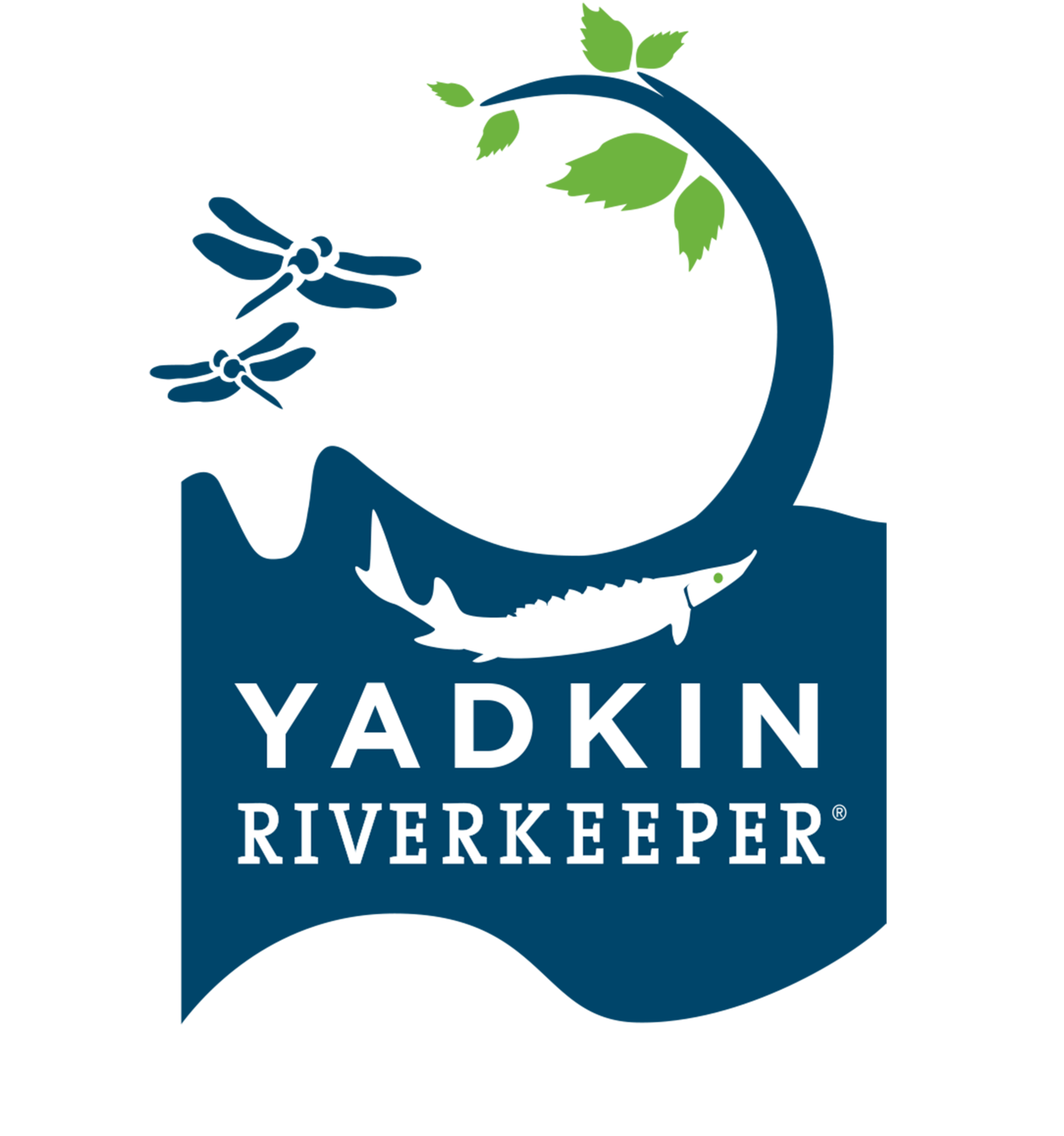We are halfway through a very unusual year, and I wanted to provide Yadkin Riverkeeper members with an update of our work so far. Even with the lockdown, the restrictions, and other adjustments we have had to make for Covid 19, Yadkin Riverkeeper has still been at work throughout the watershed.
Perhaps the most obvious change has been with our Historic Paddle Tour events. We had to cancel the May event, but with the help of David White and Dr. David Cranford, we were able to put together an online presentation about that float and the fish weirs of the Yadkin – check it out if you haven’t seen it.
We decided to go with a reduced paddle size and some safety guidelines for the Falls Lake Paddle in June, and it was a great paddle. We had good weather, but most importantly the participants said that they felt safe with the guidelines we used. With that experience, we are proceeding with plans for the July 25 paddle from the 64 Access to the 801 (Concord Church) Access, again with a limited number of paddlers and safety precautions to keep everyone safe. See the link below for registration information.
In addition to the paddle changes, we continue to monitor and share our concerns about threats to the River land lakes. A recent report from NC State showed that per- and polyfluoroalkyl substances (PFAS) are beginning to accumulate in the ecosystem in the Yadkin. While this study was conducted primarily in the lower river, one site upstream of High Rock Lake also showed elevated levels. YRK has been in touch with one of the authors of the study, and we are following up to try to get more testing in the upper river, and work on tracing possible sources. Sadly, we know that PFAS compounds are used in many everyday items and represent a growing concern to water quality throughout North Carolina and nationwide. Given the widespread nature of the problem, Yadkin Riverkeeper is working with other Riverkeepers in North Carolina to tackle the problem on a statewide level.
Work continues in Badin, pushing for Alcoa to clean up hazardous materials buried throughout the area. We have seen that they can do a thorough cleanup at their site in New York, and we believe that North Carolina deserves that same level of clean-up to protect our waters.
Our “Roadmap for the Yadkin” work on creating a management plan for the watershed of High Rock Lake is moving toward a conclusion this Fall. We have engaged multiple stakeholders in the region and worked with both private and State entities to produce an analysis of the likely sources of non-point pollution (agriculture and urban areas). The Roadmap will look at priority areas for protection as well as steps to otherwise reduce the flow of nutrients and sediment into the Yadkin River.
The last of our “big” issues is the continued monitoring of nutrients in High Rock Lake, especially has we have already seen possible algal blooms already. As the nutrients continue to flow into the lake and the weather gets warmer, we will be watching the lake for signs of algae. Related to this field work, YRK has been involved with other riverkeepers in the state to produce a basic fact sheet to help understand algae blooms. What we have learned is that they are difficult to predict, and that production of toxins (making it a “Harmful Algae Bloom,” HAB) is nearly impossible to predict. We will continue sampling, monitoring, and working with State and academic partners to bring a clearer understanding of the blooms, and the actions needed to reduce their occurrence. We are pleased that the NC Science Advisory Council has recommended a chlorophyll-a standard for High Rock Lake and will be reviewing and commenting on that recommendation as it moves forward in the rule-making process.
